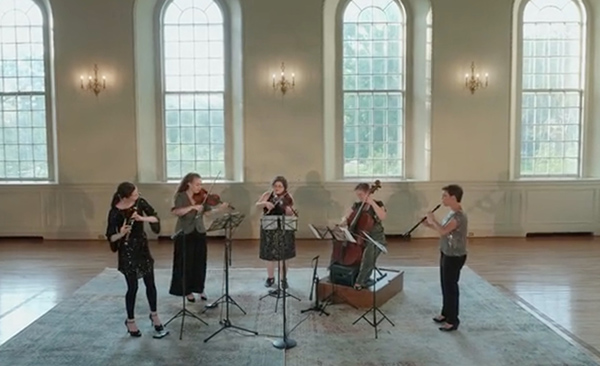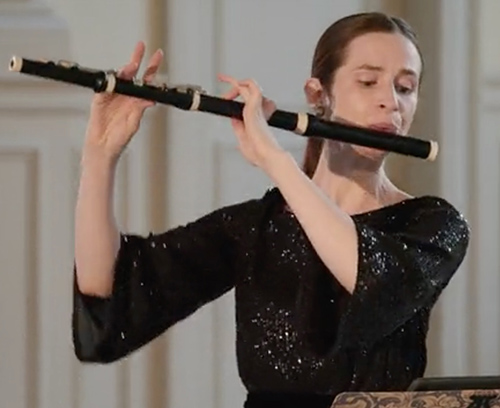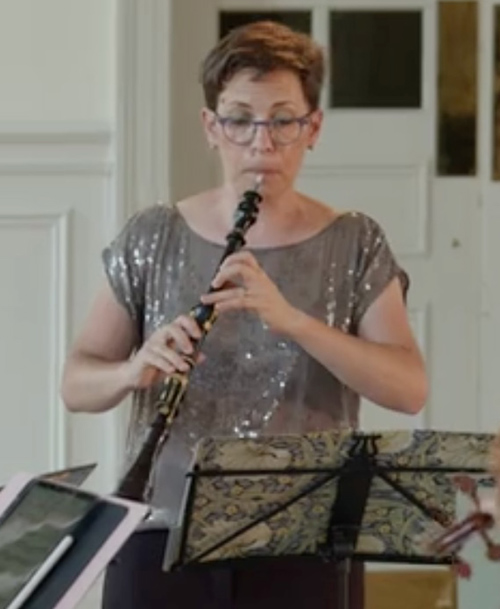by Daniel Hathaway

Following centuries of injustice and exploitation, new ideas of equal opportunity and representative government in one of the principal documents of the French Revolution, the Declaration of the Rights of Man, led enslaved Africans in the French colony of Saint-Domingue (which included what is now Haiti) to mount their own revolution in 1791, only two years after the French. Struggles for racial justice are ongoing.

What was originally a sonata in E-flat for flute and harp has been adroitly arranged by Nagy as a quartet for flute and strings. Delightful and tuneful, the sonata, Nagy writes, “belies the racism that he faced forging a path as a Black performer and composer in late 18th-c. France.”


“Winds of Change” ends with a splendid performance of Luigi Boccherini’s Quintet in C, a piece seemingly so unrelated to the theme of the program that it might have just dropped out of the sky.
The quintet features challenging writing for the wind players, and Ferguson and Nagy step up smartly to the plate and deliver flawless playing. In addition to allowing the listener to get lost in the music, the piece shows how resourceful Boccherini can be in finding ways to decorate and complicate a C-Major scale. Perhaps the vision of civilization Boccherini builds into this Quintet is one of the reasons we fight revolutions.
Published on ClevelandClassical.com November 24, 2021.
Click here for a printable copy of this article


